READY TO GET STARTED?
REQUEST A FREE ESTIMATE
Fill out the form below or call (888) 466-7849 for a free, no-obligation estimate.
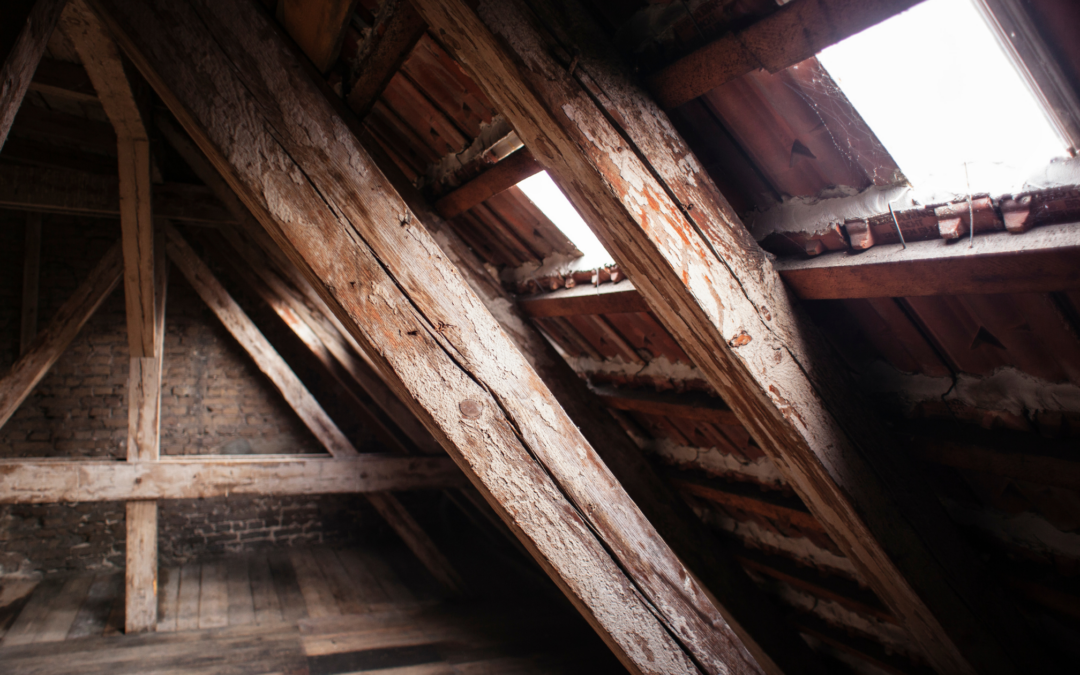
When it comes to maintaining a comfortable and energy-efficient home in Georgia, attic insulation plays a crucial role. Proper attic insulation not only keeps your home cool in the summer and warm in the winter but also contributes to the overall health of your home. As a pest control company in Georgia, we understand that insulation is a key component in protecting your home from pests and other issues. In this blog, we’ll explore the benefits of attic insulation, the importance of energy efficiency, and how proper insulation can contribute to a healthier home environment.
Attic insulation acts as a barrier between your living space and the outside environment, regulating temperature and preventing the exchange of heat. In Georgia’s diverse climate, where hot summers and mild winters are common, this regulation is essential for maintaining a comfortable indoor temperature year-round.
One of the most significant benefits of attic insulation is improved energy efficiency. Without adequate insulation, heat can easily escape during the winter or enter during the summer, causing your HVAC system to work harder to maintain a comfortable temperature. This increased workload leads to higher energy bills. By insulating your attic, you can reduce the amount of heat transfer, keeping your home cooler in the summer and warmer in the winter, ultimately lowering your energy costs.
Proper attic insulation ensures that your home maintains a consistent temperature throughout the year. This consistency not only contributes to energy efficiency but also enhances overall comfort. During the sweltering Georgia summers, a well-insulated attic can prevent excessive heat from entering your living spaces, allowing you to enjoy a cooler indoor environment. Similarly, in the winter, insulation helps retain heat, keeping your home warm and cozy.
Attic insulation also plays a vital role in pest control. Pests such as rodents, insects, and birds often seek shelter in attics, especially during extreme weather conditions. Poorly insulated attics can provide easy entry points and nesting areas for these pests. By ensuring proper insulation, you can seal gaps and cracks that pests use to enter your home. Additionally, some insulation materials, like spray foam, can act as a deterrent to pests, making it less likely for them to infiltrate your attic.
Moisture can be a significant issue in homes, leading to mold growth and structural damage. In Georgia, where humidity levels can be high, attic insulation can help control moisture levels in your home. Insulation acts as a barrier, preventing moisture from seeping into your living spaces. This not only protects your home’s structural integrity but also improves indoor air quality by reducing the risk of mold and mildew growth.
Another advantage of attic insulation is its ability to soundproof your home. Insulation materials can absorb sound, reducing the transmission of noise from the outside and between rooms. This is particularly beneficial if you live in a noisy neighborhood or near busy roads. A quieter home environment contributes to a more peaceful and relaxing living space.
Proper attic insulation requires selecting the right materials and ensuring they are installed correctly. There are several types of insulation materials available, each with its own benefits:
When insulating your attic, it’s essential to consider the R-value, which measures the insulation’s thermal resistance. The higher the R-value, the better the insulation’s effectiveness. In Georgia, it’s recommended to have an R-value of R-30 to R-60, depending on your home’s specific needs.
Attic insulation is more than just a way to keep your home comfortable; it’s an investment in your home’s overall health and energy efficiency. By properly insulating your attic, you can enjoy lower energy bills, enhanced comfort, and protection against pests and moisture. As a pest control company in Georgia, we encourage homeowners to prioritize attic insulation as part of their home maintenance routine. Not only will it improve your home’s energy efficiency, but it will also contribute to a healthier and more comfortable living environment.
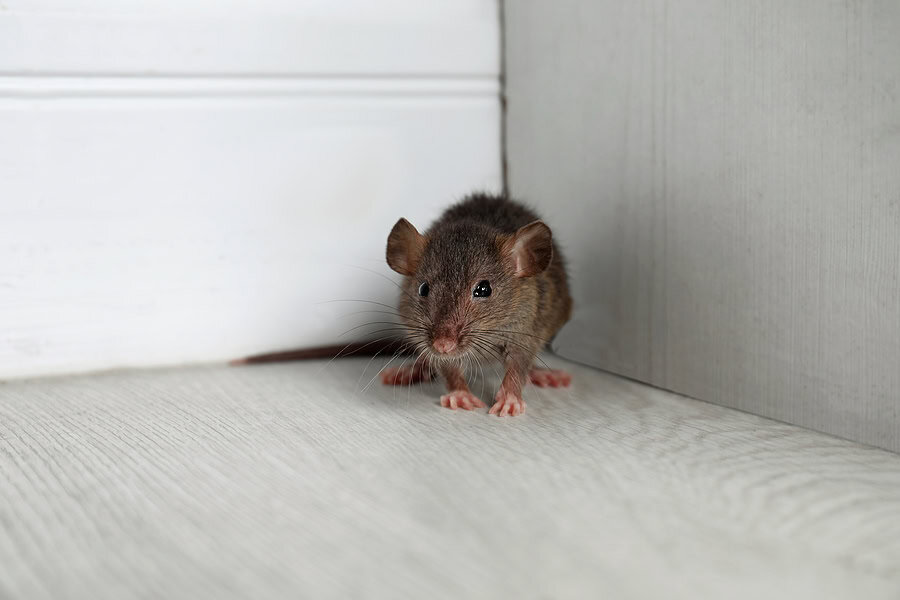
Our warm climate attracts several unwanted pests, including rodents like rats and mice! These pests will cause significant damage to your property and pose health risks to your family. Let’s review why you need rodent prevention, how you can prevent them from invading your home and the potential damage they can cause!
Rodents are more than just a nuisance, they will cause serious harm to your property, including:
To keep your Doral home rodent-free, consider these DIY rodent prevention tips:
If you’ve noticed rodent activity on your property, it’s best to call a pest control company near you. These rodent experts will provide your home with a thorough inspection, identify the type of rodent that’s invaded, and provide a rodent control and prevention plan.
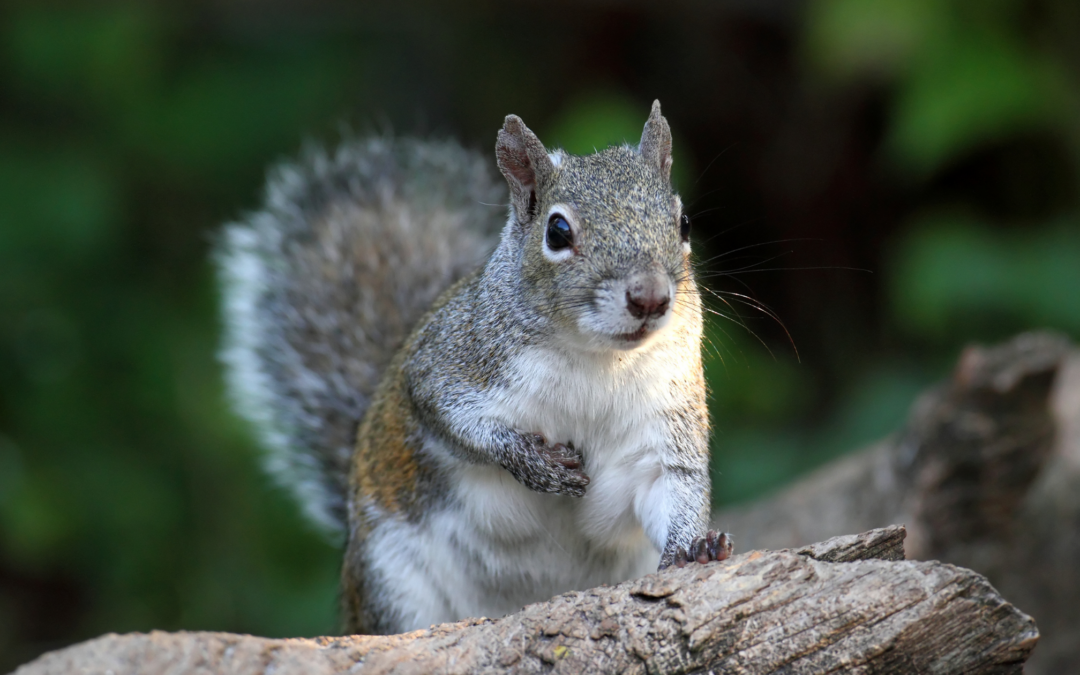
Squirrels are a common sight in Georgia, often seen scampering through trees and parks. While they can be charming to watch, these bushy-tailed rodents can become a significant nuisance when they invade your home and yard. This blog will discuss the common types of squirrels in Georgia, the hazards they pose, and effective squirrel control methods to deter them. We will also provide tips on what to do if you find a squirrel inside your home.
Georgia is home to several species of squirrels, but the most common types that homeowners encounter are the Eastern Gray Squirrel, the Fox Squirrel, and the Southern Flying Squirrel.
While squirrels may seem harmless, they can cause a range of problems for homeowners:
Discovering a squirrel inside your home can be startling. Here’s what you should do:
Preventing a squirrel infestation is much easier than dealing with one. Here are some effective strategies for squirrel control:
While DIY methods can be effective for minor squirrel issues, professional wildlife control services are recommended for larger infestations or if the squirrels have caused significant damage. Wildlife control companies have the expertise and equipment to safely and humanely remove squirrels from your home. They can also provide advice on preventing future infestations and repair any damage caused by the animals.
If you’re facing a squirrel problem, don’t hesitate to search for “squirrel removal near me” to find a reliable wildlife control company in Georgia. Professional services ensure that the job is done thoroughly and humanely, providing peace of mind and a squirrel-free home.
Squirrels, while fascinating creatures, can become problematic when they invade our homes and yards. By understanding the common types of squirrels in Georgia and the potential hazards they pose, homeowners can take proactive steps to prevent infestations. Remember, effective squirrel pest control involves a combination of exclusion, deterrents, and, if necessary, professional wildlife removal. Keep your home safe and secure by addressing any signs of squirrel activity promptly and maintaining preventive measures year-round.
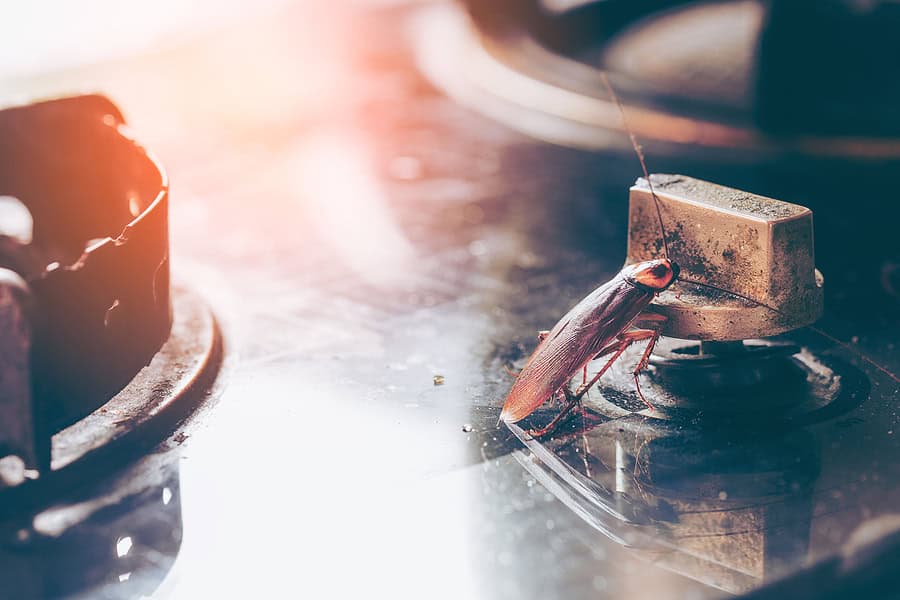
Roaches are resistant and highly adaptable pests, skilled at finding their way indoors and multiplying quickly to create an infestation in your home! One of the best ways you can keep a roach-free home is implementing some effective DIY prevention measures! Let’s review the reasons roaches infest and the ways you can deter them from your home.
There are several, everyday factors that will attract roaches inside your home, including:
Roaches contaminate surfaces they touch and can trigger allergies and asthma, so stopping them before they even enter your home is important for the health of your family. Here are some easy, roach prevention tips that every Florida homeowner can utilize:
While prevention can help keep cockroaches away, sometimes it’s best to get professional help! Call a pest control company near you to inspect your home and provide you with the best treatment and prevention plan to make sure you have a roach-free home.

Mosquitoes are more than just a nuisance; their bites can pose serious health risks to humans and pets. In Georgia, where warm and humid conditions create an ideal breeding ground for these pests, it’s essential to understand how to protect your family effectively. This blog will detail the risks associated with mosquito bites, tips to prevent them, and the most effective mosquito repellents, including natural options and mosquito-repellent plants.
Mosquito bites can lead to more than just itchy welts. They are vectors for several dangerous diseases, posing significant health risks:
Preventing mosquito bites involves a combination of personal protection and environmental management. Here are some practical tips:
When it comes to mosquito repellents, efficacy and safety are paramount. Here are some of the best options:
DEET is the most widely used active ingredient in mosquito repellents and is highly effective. Products containing 20% to 30% DEET provide long-lasting protection and are safe when used as directed by the Environmental Protection Agency (EPA).
Picaridin is another effective mosquito repellent that provides comparable protection to DEET. It is odorless, non-greasy, and less likely to irritate the skin. Products with 20% picaridin are recommended for the best protection.
OLE is a plant-based repellent recognized by the CDC as an effective alternative to DEET and Picaridin. Products with 30% OLE can provide protection for up to six hours. It’s important to note that OLE should not be used on children under three years old.
For those looking for natural options, several plant-based repellents can help keep mosquitoes at bay:
Citronella oil, derived from lemongrass, is a common natural mosquito repellent. Candles, sprays, and lotions containing citronella can provide short-term protection. However, it’s not as long-lasting as DEET or Picaridin.
Lavender oil not only has a pleasant fragrance but also acts as a natural mosquito repellent. Applying diluted lavender oil to the skin can help deter mosquitoes.
Tea tree oil has antiseptic and anti-inflammatory properties. It can be used as a natural repellent, though it should be diluted before application to avoid skin irritation.
Incorporating mosquito-repellent plants into your garden can provide additional protection. Here are some plants known for their mosquito-repellent properties:
Marigolds contain pyrethrum, a compound used in many insect repellents. Planting marigolds around your home can help keep mosquitoes at bay.
Basil is not only a culinary herb but also a mosquito repellent. The essential oils in basil can deter mosquitoes, making it an excellent choice for patio gardens.
Catnip contains nepetalactone, which is highly effective at repelling mosquitoes. It is ten times more effective than DEET in some studies.
Mosquito control is essential for protecting your family from the health risks associated with mosquito bites. By combining effective mosquito repellents with preventive measures and natural solutions, you can enjoy the outdoors without the constant threat of these pests. For comprehensive mosquito control, consider consulting a professional mosquito control company in Georgia. They can provide tailored solutions to keep your home and yard mosquito-free.

Drywood termites cause significant damage to homes and structures if left unprotected, causing millions of dollars in repairs. Unlike their counterpart, the subterranean termite, drywood termites live entirely within the wood they infest, making them challenging to control. Luckily, there are several effective drywood termite treatment options available to Florida residents to eliminate and prevent these pests! Let’s explore these treatment options.
Fumigation involves tenting an entire structure and utilizing gas to penetrate the wood and eliminate termites. This method can be highly effective at eradicating termites, eliminating any that are present on the property. Fumigation is also known to treat large termite infestations throughout an entire structure. Fumigation does require the occupants to vacate the property for several days.
Professional termite experts will directly inject an advanced, non-repellent product into drywood termite galleries to eliminate the termites found in a home. The no-tent treatment is slow acting, which allows termites who encounter the product to take it back to the queen and colony to eliminate it. This method is a great alternative to the fumigation method if you would rather avoid leaving your home.
The best way to ensure that you don’t end up with a drywood termite invasion is to deter them away from your home in the first place. Check out our DIY tips to preventing drywood termites:
While these tips will support efforts to deter termites, if you notice termite activity on your property, it’s best to call a termite control company near you to start termite control treatments and schedule an annual termite inspection to prevent future infestations.
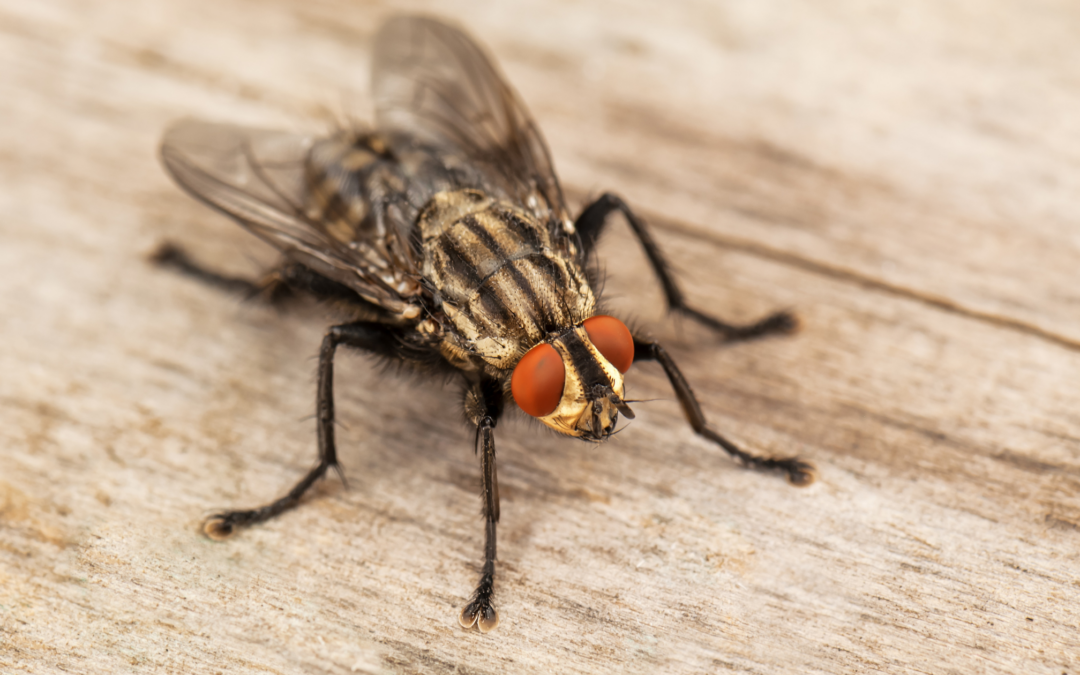
House flies are a common nuisance in homes across Georgia, often making their presence known with their incessant buzzing and quick movements. Understanding why these pests enter homes, the risks they pose, and how to prevent them can help you maintain a house fly free environment. This blog will explore the characteristics of house flies, why they infest homes, and effective strategies for keeping them out.
House flies (Musca domestica) are the most common fly species found in homes. They are medium-sized, typically measuring about 1/4 inch long. House flies have gray or black bodies with four dark longitudinal stripes on their thorax. Their eyes are notably large and compound, providing them with a wide field of vision. The life cycle of a house fly includes four stages: egg, larva (maggot), pupa, and adult. Under ideal conditions, this cycle can be completed in as little as seven to ten days, allowing large numbers to develop quickly.
House flies enter homes primarily in search of food, warmth, and breeding sites. They are attracted to a wide variety of organic materials, including food waste, decaying matter, and animal feces. Kitchens, garbage bins, pet areas, and even indoor plants can become attractive breeding sites. Flies are particularly adept at finding tiny openings in windows, doors, and vents, which they use to gain entry.
During cooler months, house flies seek warmth, which makes homes an attractive refuge. They are also drawn to the scent of food and garbage. Poor sanitation and improperly sealed entry points can exacerbate the problem, leading to an infestation.
While house flies may seem harmless, they can pose significant health risks. The house fly is known to carry and transmit a variety of pathogens, including bacteria, viruses, and parasites. House flies can contaminate food and surfaces with these pathogens, leading to illnesses such as food poisoning, dysentery, and respiratory infections. The fact that house flies frequently feed on waste materials further increases the risk of disease transmission.
In addition to health risks, house flies can be a general annoyance. Their presence can be unsettling, and they can quickly multiply, becoming a larger issue if not addressed promptly.
Preventing house flies from entering your home requires a combination of good sanitation practices, physical barriers, and, if necessary, professional pest control services. Here are some effective strategies:
House flies are more than just a minor inconvenience; they pose real health risks and can be a persistent problem if not properly managed. By understanding why these pests enter homes and implementing effective prevention measures, you can keep your living space free of flies. Remember, maintaining cleanliness, eliminating breeding sites, and sealing entry points are key steps in preventing a house fly infestation. For more persistent issues, a professional pest control company can offer comprehensive solutions.

Living in Florida offers plenty of sunshine and beaches, but it also means dealing with fire ants. These pests thrive in our humid, warm environment, quickly taking over yards by creating mounds and delivering painful stings. Reducing and preventing fire ant activity is easier than you think. Let’s breakdown everything you need to know about fire ants.
Fire ants are known for their painful stings and aggressive behavior if they feel threatened, often stinging multiple times. If stung, these pests will inject venom that causes a burning and itching sensation, and in some cases will cause allergic reactions.
Fire ants can vary in size, ranging from 1/8 to ¼ inch and have reddish-brownish bodies. You’ll often see fire ants building their large, dome-shaped mounds in areas that are open and sunny, such as lawns, pastures, and along roads. These mounds can reach up to 18 inches in height!
Deterring fire ants away from your property is the first step to avoiding an infestation. Consider these DIY fire ant prevention tips:
If you’ve spotted one too many fire ant mounds on your property, call a pest control company near you. These experts will provide you with an inspection, fire ant control plan, and prevention tips to avoid an ant infestation in the future.
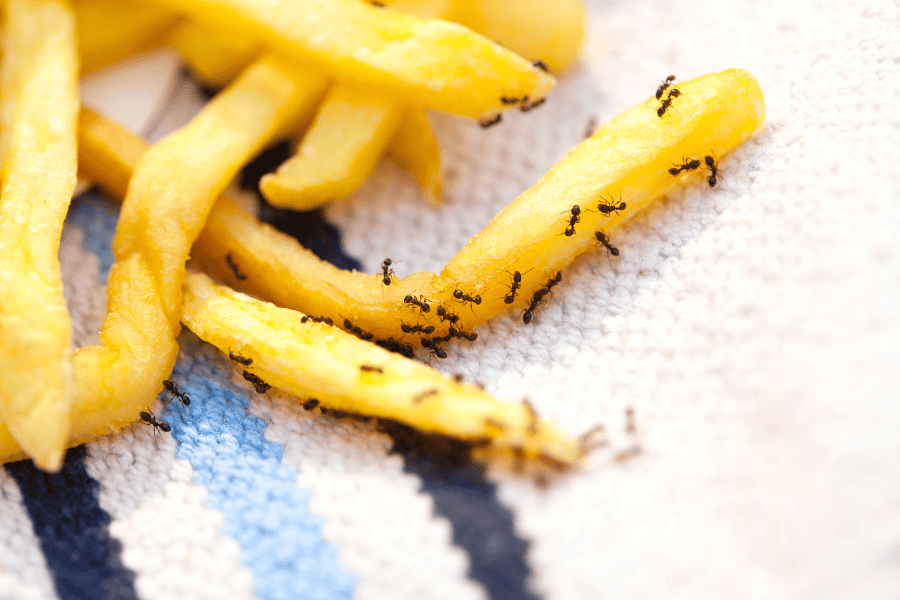
Miami’s warm, tropical climate is the perfect paradise for not only humans but pests too! It’s crucial for all Florida homeowners to be vigilant in controlling and preventing common household pests to avoid a full-blown infestation. Check out the common pests you should look out for and our tips on preventing them.
Preventing pests from entering your home is the first step in avoiding an infestation. Here are some effective pest prevention tips:
By implementing and staying informed on common pests in your area, you can keep your home pest-free. If you’ve noticed an influx of the pests mentioned above or would like to get ahead of prevention, it’s always best to call a Miami pest control company near you. These pest control professionals will provide you with a thorough inspection, identify the pest, and recommend the best treatment and prevention plan.